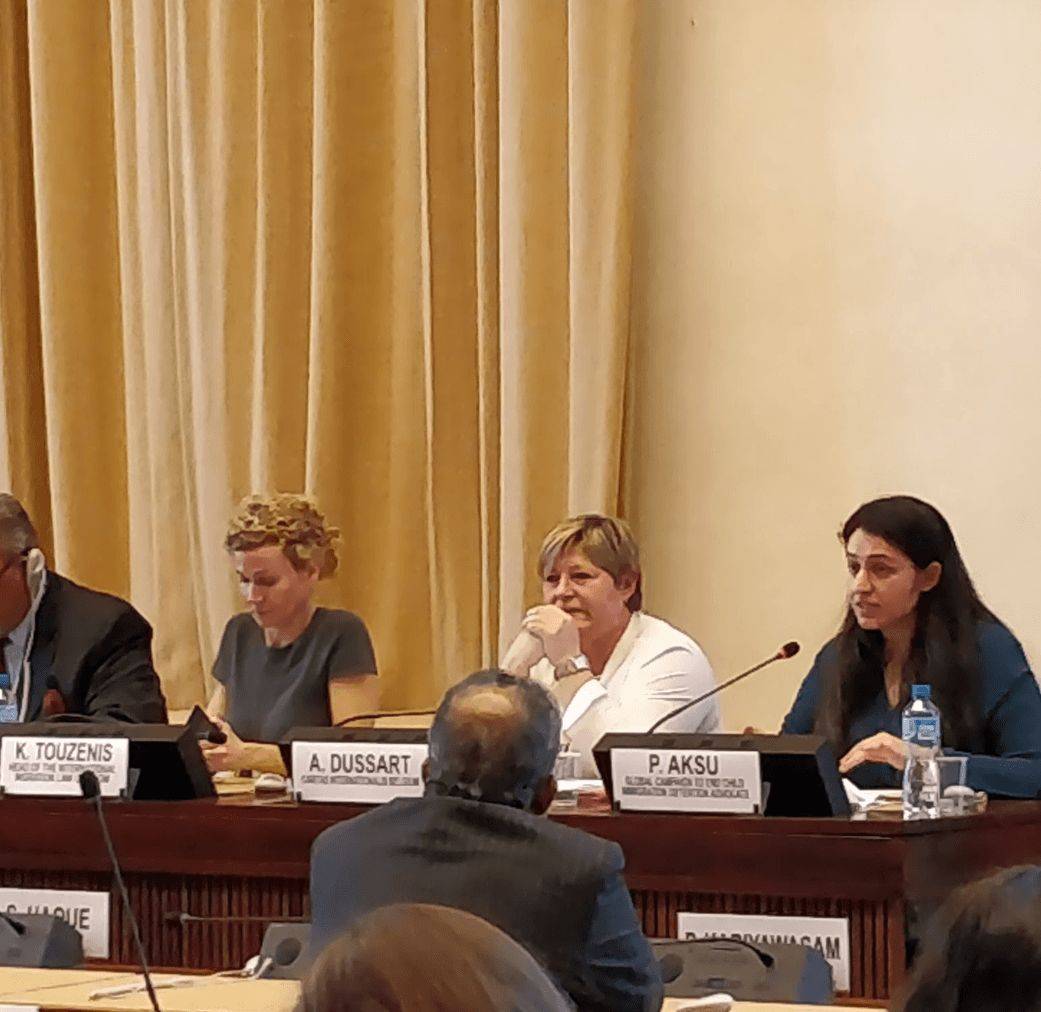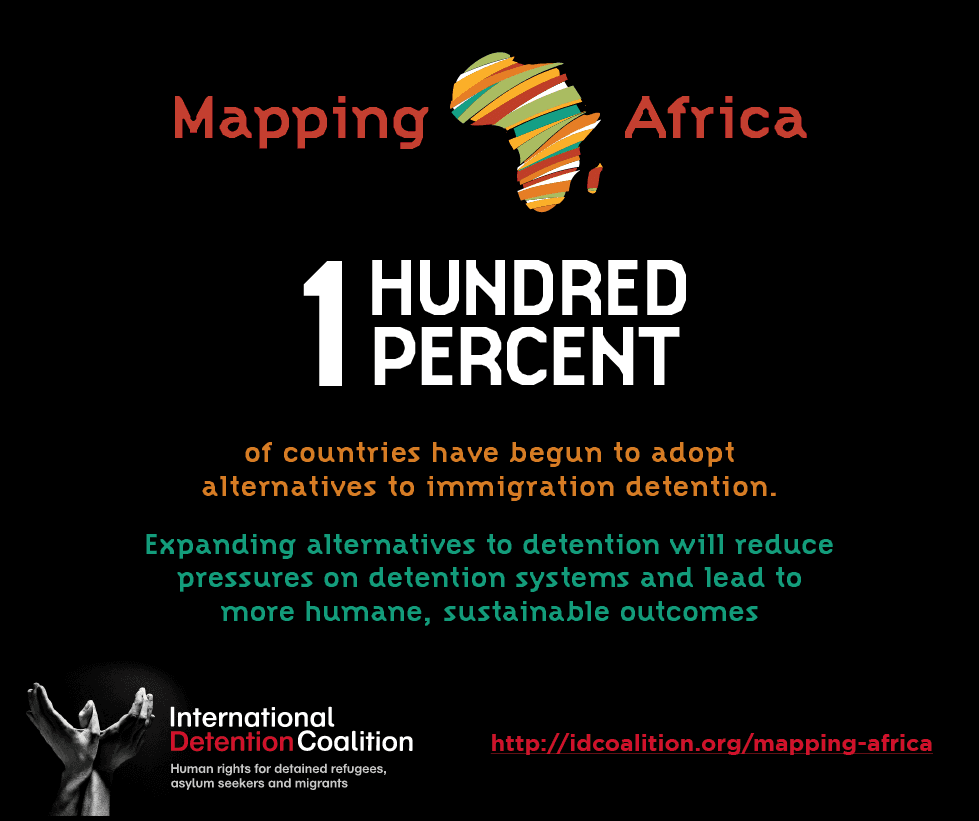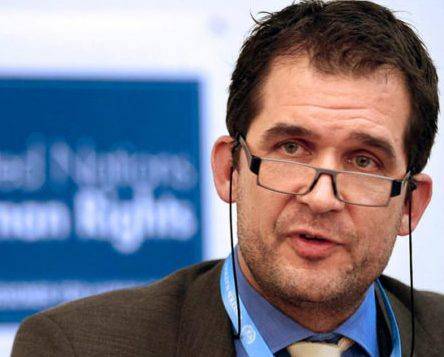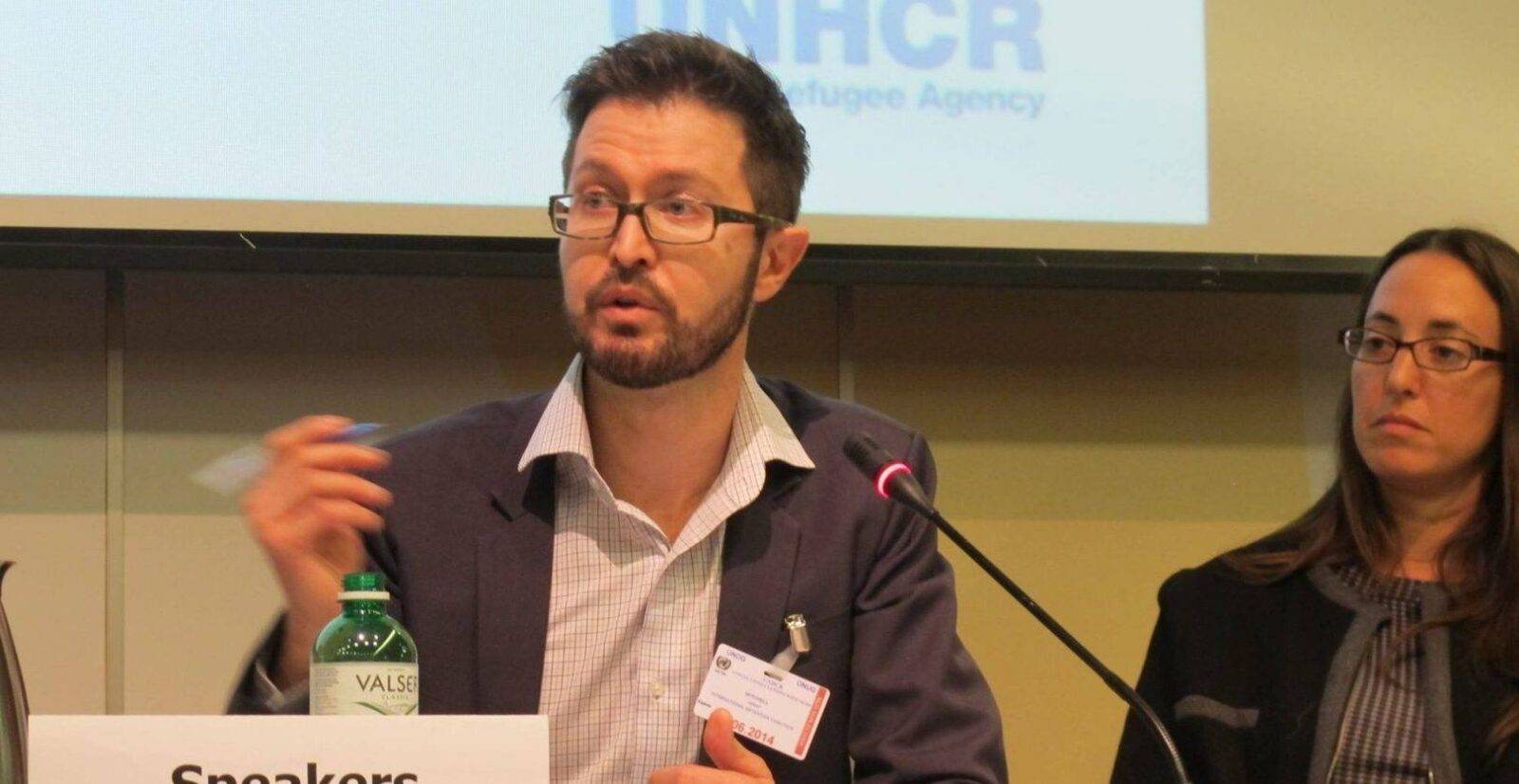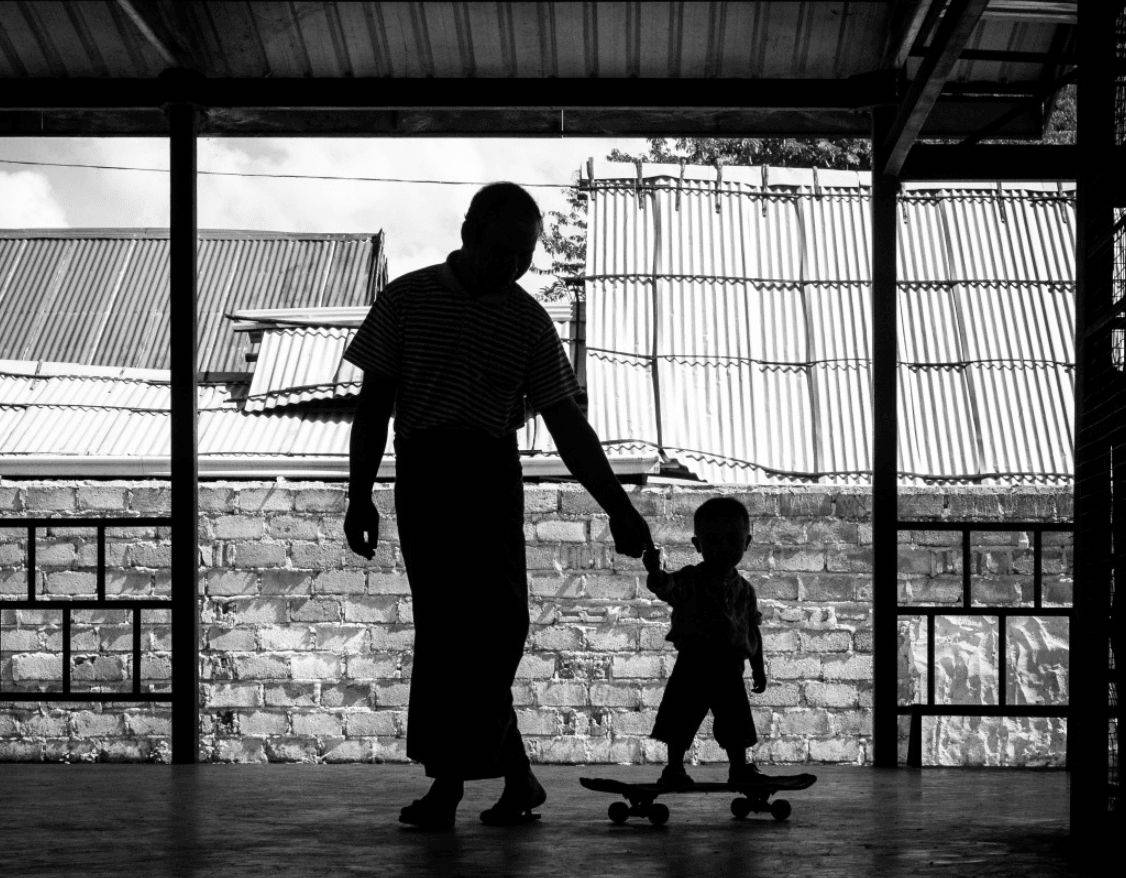IDC Member Meeting 2018
The IDC Member Meeting took place directly after the Geneva UNHCR NGO Consultations and provided an opportunity for engagement with some of our 400 Members worldwide.
Watch a recording of the Member Meeting here:
For a copy of the minutes, please email [email protected]
IDC Member Meeting 2017
Our Member Meetings are a chance to come together, discuss trends, and determine how our coalition will continue to work together in the year to come. The development of the Global Compacts on Refugees and Migrants formed the basis for discussions about impactful advocacy.
IDC Member Meeting 2016
In his opening address, IDC Director Grant Mitchell highlighted the pressures that NGOs are facing in response to unprecedented number of people migrating, pointing to the 250 alternatives to detention that the IDC has identified from over 50 countries, as a viable option for migration governance.
UN Detention Experts: End Criminalisation of Migration
When is detention arbitrary? When is it lawful? Imminent UN Detention experts clarify in their revised Deliberation No. 5

Expressing concern over the constant use of detention in the context of migration, the Working Group on Arbitrary Detention has recently revised its Deliberation No. 5.
“The irregular entry and stay in a country by migrants should not be treated as a criminal offence,” it states.
The revised text includes a clear call on States to seek alternatives to detention such as community-based solutions to ensure immigration detention is only use as an exceptional measure of last resort and that detention of migrants in situations of vulnerability never takes place.
It reaffirms the absolute prohibition of arbitrary detention in migration contexts, the exceptionality of any form of administrative detention and the absolute prohibition of detention of migrants in situations of vulnerability. As such, detention must be used only in exceptional circumstances and, when resorted to, must be lawful, justified as reasonable, proportionate and necessary by a judicial authority, and only for the shortest period of time.
Specifically on the issue of child detention, the Revised Deliberation No. 5 provides strong lines to challenge the detention of accompanied children. Advocates are often confronted with States justifying the need to detain accompanied children with their parents or legal guardians as the only mean to maintain family unit and protect the principle of best interests of the child. Revised Deliberation No. 5 sends a straight forward message: “Alternatives to detention must be applied to the entire family instead”.
“Detaining children because of their parents’ migration status will always violate the principle of the best interests of the child and constitutes a violation of the rights of the child..."
“Detaining children because of their parents’ migration status will always violate the principle of the best interests of the child and constitutes a violation of the rights of the child”, reads the Revised Deliberation reflecting the authoritative guidance given by the Committee on the Rights of the Child and the Committee on the Protection of the Rights of All Migrant Workers and Members of their Families through the two Joint General Comments on the human rights of children in the context of international migration in countries of origin, transit, destination and return.
By revisiting its Deliberation No.5 the Working Group consolidates its own jurisprudence on deprivation of liberty of migrants and reflects relevant changes in international law providing a helpful tool not only for States but also for advocates and human rights defenders working to protect migrants from criminalisation practices such as detention and other forms of deprivation of liberty.
Read the Revised Deliberation No. 5 on deprivation of liberty of migrants here.
Country Reports on Child - Sensitive Migration
Kids Empowerment, a Paris-based NGO and IDC member, aims to empower children and youth by helping them assert their rights, as well as advocate for the compliance of international law in the protection of migrant children. Part of their work involves creating and publishing comparative country reports, which look at the legal framework affecting children on the move both in transit and receiving countries. Their goal is to identify best practices and highlight areas that should be improved, and to provide technical guidance to public authorities and private organisations working in the field of children’s rights.
Key issues addressed in their reports are – among others - basic fundamental rights, access to justice, conditions in reception centres, family reunification, guardianship, age assessment, best interest of the child in the asylum process, deportation and automatic returns. They also include a section on detention.
Country reports for Czech Republic, Finland, Italy, Mexico and Ukraine are already available.
More information can be found on their website, https://kidsempowerment.org
Joint General Comment Launch on Child Migrants


Pinar Aksu, Advocate for the End Child Detention Campaign, speaks at the launch of the Joint General Comments at the UN Palais Des Nations
Two complementary joint general comments on the human rights of children in the context of international migration were launched this week by the Committee on the Protection of the Rights of All Migrant Workers and Members of Their Families, and the Committee on the Rights of the Child.
Read the Joint General Comments here.
Effectively, these General Comments provide authoritative guidance that immigration detention is a child rights violation.
Every Member State in the UN, except for the United States of America, have ratified the Convention on the Rights of the Child, so this General Comment applies broadly to the vast majority of Member States.
The comments emphasise that children should never be detained for reasons related to their or their parents’ migration status and States should expeditiously and completely cease or eradicate the immigration detention of children. The Committees also clarified the reason the principle of ‘last resort’ does not apply to children in the context of migration.
The launch took place on 16 April 2018 from 3:00 to 5:00 pm at Palais des Nations in Conference Room XII.
Ms. Pinar Aksu, a Youth Advocate from the Global Campaign to End Child Immigration Detention featured as one of the speakers at the event. She shared her experience of being detained at 14 years old for over two months when her family sought asylum in the UK.
“We were treated as criminals. Governments may use different words to make these policies sound acceptable, however it is the same as if I was being deprived of my liberty without cause… As a child at the time, I saw many things that no child should see…” said Ms. Aksu.
Other panellists included:
- Pablo Ceriani, Former Vice-Chair of the Committee on the Protection of the Rights of All Migrant Workers and Members of Their Families
- Benyam Dawit Mezmur, Member of the Committee on the Rights of the Child
- Laurent Chapuis, Regional Advisor Migration, UNICEF Regional Office for Europe and Central Asia
- Jill Helke, Director, Department of International Cooperation and Partnerships, IOM
- Anne Dussart, Caritas Internationalis Belgium
- Pinar Aksu, Global Campaign to End Child Immigration Detention Advocate
The joint general comments aim to contribute to improving the protection of the human rights of children which are, in the context of international migration, in a particular situation of vulnerability. Specific goals of these general comments include elaborating for State Parties and other key stakeholders guidelines for developing migration, childhood and related policies aimed at protecting and realizing the rights of children in the context of international migration.
Read the program for the event here.
See the UN Office of the High Commissioner for Human Rights Statement on the Launch here.
Report Launch Alongside ACHPR
The International Detention Coalition (IDC) invites you to the launch of our new report and panel discussion on "Alternatives to the use of Immigration Detention in Africa".
The launch will be held on Thursday, 26 April 2018 as a side-event at the 62nd Ordinary Session of the African Commission on Human and Peoples' Rights (ACHPR) in Nouakchott, Islamic Republic of Mauritania.
Time: 12:30 – 14:00
Venue: TBC (within the Palais des Congrès)
Please see the Agenda for more information: Agenda ACHPR 62nd Session Side Event on Alternatives to Immigration Detention
Unfortunately the IDC does not have funding to cover participant's costs but please RSVP here if you are scheduled to attend anyway.
If you would like more details please email: [email protected]
HRC Event: Protecting the Human Rights of Migrants
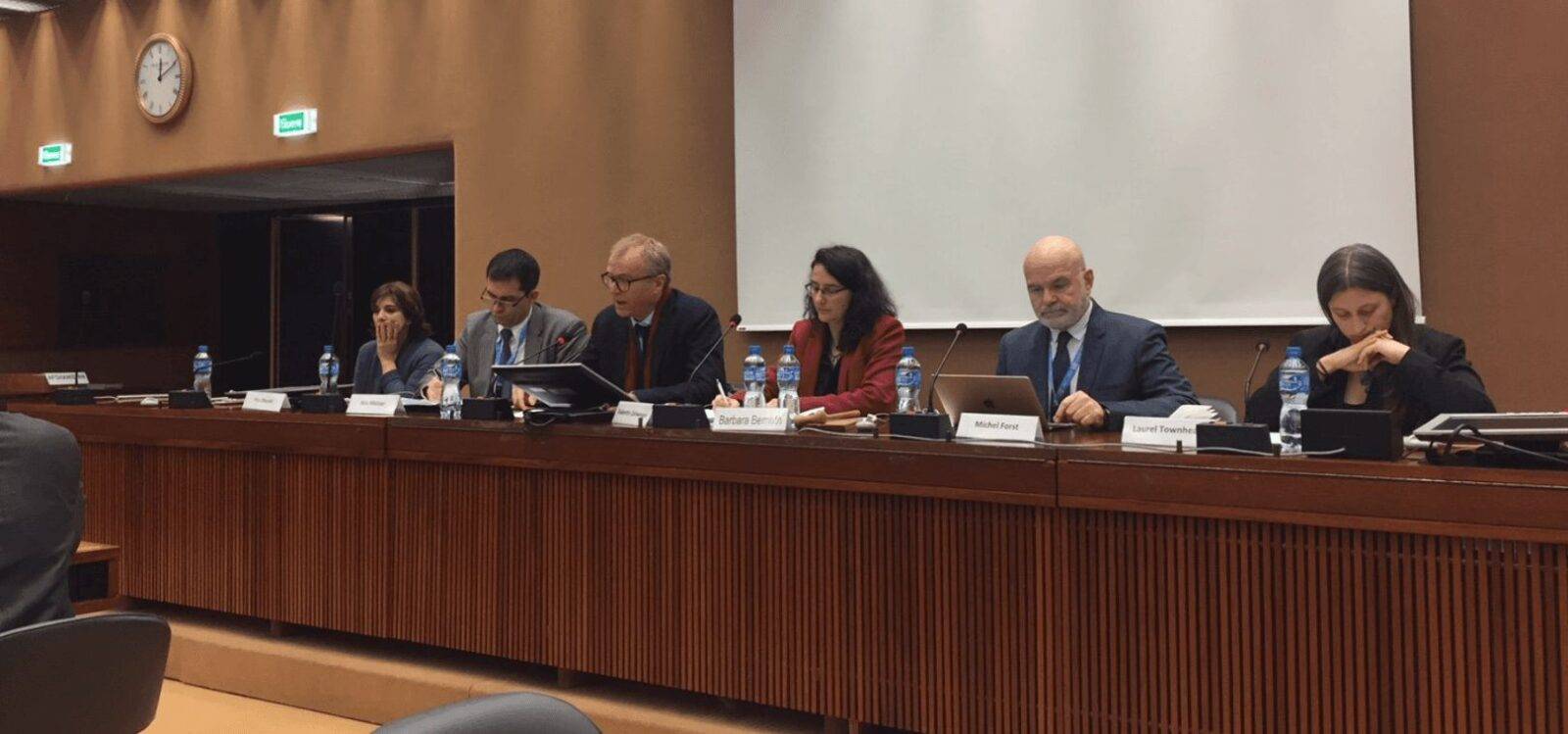
During the 37th Session of the UN Human Rights Council, the IDC was one of several organisations involved in convening a side event on how to enhance the rights of migrants and of those defending their rights.
The event was a join initiative of the Association for the Prevention of Torture (APT), International Service for Human Rights (ISHR), the International Detention Coalition (IDC) and the Permanent Mission of Switzerland to the United Nations.
Panellists included Mr Nils Melzer, Special Rapporteur on Torture and Other Cruel, Inhuman or Degrading Treatment or Punishment; Mr Michel Forst, Special Rapporteur on the situation of human rights defenders; Ms Laurel Townhead, Representative, Human Rights and Refugees, Quaker United Nations Office; and Ms Pia Oberoi, Advisor on Migration and Human Rights, Thematic Engagement, Special Procedures and Right to Development Division, OHCHR.
The discussion is very timely as, while the negotiation for the Global Compact on Safe, Orderly and Regular Migration continues, the two UN Special Rapporteurs on the Panel have presented to the UN Human Rights Council their thematic reports dedicated to the protection of the human rights of migrants. These reports respectively focus on torture and other ill-treatment in the context of migration and the experience of human rights defenders working in the context of people on the move.
Specifically addressing immigration detention, the UN Special Rapporteur on Torture reiterated with concern the findings of his most recent thematic report: that detention has become a standard response to irregular migration and causes a chain of human rights violations and abuses which can amount to torture and ill-treatment.
Watch the side event here.
A Warning for States: SR Torture Expert
Is detention torture? The UN Expert on Torture says it certainly could be in his thematic report to the Human Rights Council
During the presentation of his thematic report to the UN Human Rights Council, the Special Rapporteur on Torture and other cruel, inhuman or degrading treatment or punishment, Mr. Nils Melzer, warned States that the systematic and open-ended detention of people based only on their migratory status can amount to torture, especially when it is intentionally used to deter, intimidate or punish migrants or their families, or to coerce people into withdrawing asylum requests, accepting voluntary repatriation, giving information or providing fingerprints.
“The longer a situation of arbitrary detention lasts, the more intense the mental and emotional suffering will become, and the higher the likelihood that the ban on torture or ill-treatment has been breached,” the Special Rapporteur clarified.
Through his report, the UN Special Rapporteur recommends that States urgently address the migration governance when it has been based on the criminalisation of irregular migration. The report found that the majority of States are criminalising irregular migration, and subsequently using immigration detention as a routine - or even mandatory - response.
Along these lines, the Special Reporter urges States to refrain from policies of mandatory, prolonged or indefinite detention and strongly highlights that migrants, especially children, should never be detained solely because of their irregular migration status or the impossibility of their expulsion.
According to Mr Melzer's report, criminal or administrative detention based solely on migration status exceeds the legitimate interest that States have to protect their territory and should be regarded as arbitrary, sometimes even amounting to ill-treatment or torture.
Read the advance unedited version of the report here
Final Directors Report from Grant Mitchell

Dear IDC Members and Partners,
This is my final report as Director of the IDC, it is a time to reflect on a decade of learning.
25 years ago in my first job working with unaccompanied asylum seekers, one of my clients disappeared. I discovered weeks later he had been detained in a local prison pending deportation.
The experience of seeing a terrified child facing unknown danger prompted a long journey to see this issue exposed and addressed…
Zero Drafts of Global Compacts - IDC Analysis
The Zero drafts of two new global compacts – one on migrants and one on refugees – are now available. These compacts turn the political commitments of the New York Declaration, adopted unanimously by all 193 UN Member States during the High-Level Summit to address large movements of refugees and migrants in September 2016, into a set of actionable commitments for State implementation.
While commitments remain weak in both compacts for people affected by immigration detention, there are significant opportunities for IDC and its members to advocate for and support those commitments that promote humane and effective responses to large movements of migrants and refugees.
Notably, through the New York Declaration, Member States have already committed to pursue alternatives to immigration detention and to work towards ending child immigration detention. During the current drafting phase of the global compacts, IDC will be working with partners to strengthen language and commitments in both compacts to ensure these principles are transposed into action. A key strategy for the IDC has been to develop 2 roadmaps that outline milestones for States to achieve in the coming years: one for ensuring no child is detained and one for ensuring alternatives to detention are implemented.
Here, the IDC analyses the opportunities and challenges presented by the Zero Drafts for expanding alternatives to immigration detention and for upholding the normative standard that children should never be detained. The analysis of the Zero Draft of each compact below includes key messages for you to use in your advocacy work ahead.
New Resource: Roadmap to End Child Immigration Detention
This advocacy tool has been developed by the International Detention Coalition in the framework of the Initiative for Child Rights in the Global Compacts, which sees more than 26 agencies working together with expertise in promoting child rights worldwide.
The Roadmap outlines the proposed milestones for states to end child immigration detention, based on the recommendations that members of the initiative collectively developed, outlining practical milestones for States to enact during the compacts.
The Roadmap also includes examples of positive practice for each milestone, and suggests a timeline. The IDC encourages advocates to use the Roadmap to support States to meet their international obligation to work towards ending child immigration detention.



